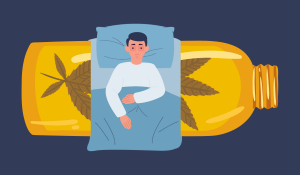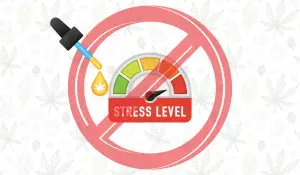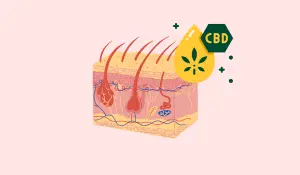Bacterial pneumonia is a lung infection characterized by buildup of fluid or another substance. It is caused by a bacterium. Symptoms include chest and back pain, cough, fever, and more. Bacterial pneumonia is almost always best treated by antibiotics. CBD is not a viable treatment for bacterial pneumonia, and could potentially be harmful.
In terms of what causes bacterial pneumonia, there are four main categories. They are as follows:
1. Hospital-acquired pneumonia is contracted in a non-intubated patient within a hospital, who has been in the hospital at least 48 hours.
2. Community-acquired pneumonia is acquired outside of a hospital setting, or in the first 48 hours of admission to a hospital.
3. Healthcare-associated pneumonia is generally acquired in long-term care centers, like nursing homes.
4. Ventilator-associated pneumonia develops in intubated patients, typically after at least 48 hours of intubation.
Various tests are frequently used to correctly diagnose bacterial pneumonia. These include the following:
• Taking a chest X-ray of a patient
• Conducting a blood test to determine a specific bacterial pathogen
• A sputum test may be administered to fluid that a patient coughs up
• A pulse oximetry reading will measure oxygen flow in the blood
• In some cases, a CT scan, or pleural fluid culture may be administered.
If bacterial pneumonia is determined to be the case, an antibiotic will usually be prescribed. In some cases, more than one type of antibiotic will need to be prescribed, to find the best match for a particular bacterium.
Other medications, like cough medicine and pain medications, may help alleviate some symptoms.
While CBD has shown efficacy as an anti-inflammatory substance, and in theory CBD for lung diseases and inflammation could have some effect on inflammation associated with pneumonia, CBD itself is not an effective treatment for pneumonia. CBD also demonstrates immuno-suppressive qualities, making its use potentially dangerous in individuals with pneumonia.
Bacterial pneumonia should be treated by a medical professional, and almost certainly is best treated by antibiotics.

If you've ever wondered about using CBD for insomnia, you should know how CBD helps anxiety, stabilizes your sleep-wake cycle, and makes falling asleep easier.
Read More
Key Features Pros Cons Real User Experience Final Verdict: Is Five CBD Full-Spectrum CBD+THC Oil Worth It? Five CBD Full-Spectrum CBD+THC Oil delivers where it...
Read More
CBD-infused salad dressing: Imagine a fresh, crisp salad enhanced with a light, herbaceous vinaigrette containing your daily dose of CBD. To create this, you’ll need...
Read More
What are CBD beverages, exactly? They’re simply drinks infused with cannabidiol (CBD), a compound found in the hemp plant. Now, before you think “high,” to...
Read More
Importance of Quality Control in CBD Quality control is the backbone of a safe CBD product. Rigorous quality standards help ensure that products are consistent,...
Read More
Understanding the Grip of Anxiety: Recognizing the Signs Have you ever felt anxious before a big event? It’s a common experience. But when anxiety becomes...
Read More
CBD for Pets: A Pet Parent’s Guide to Dosage We all want the best for our pets, especially when they’re struggling with pain, anxiety, or...
Read More
1. What Is CBD and Why Is It a Game-Changer for Skin Health? CBD (cannabidiol) is a natural compound extracted from the hemp plant. Unlike...
Read More
Potential Health Benefits of CBD for Dogs and Cats Pain and Inflammation Relief CBD may alleviate pain and inflammation in pets with arthritis or joint...
Read More
Best CBD Gummies for Sleep and Relaxation: A Comprehensive Review Through extensive testing and analysis, they have discovered that the most effective options typically contain...
Read More